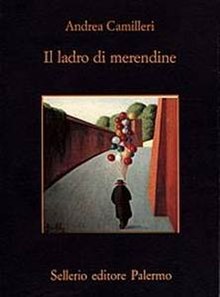
Andrea Calogero Camilleri was an Italian writer.

Omega Sentinel is a superhero later supervillain appearing in American comic books published by Marvel Comics. The character is associated with the X-Men and its spinoff Excalibur.
The Bega schoolgirl murders refer to the abduction, rape and murder of two Australian schoolgirls; 14-year-old Lauren Margaret Barry and 16-year-old Nichole Emma Collins of Bega, New South Wales, Australia on 6 October 1997. They were abducted by Leslie Camilleri and Lindsay Beckett, both from the New South Wales town of Yass. The men subjected the girls to repeated rapes and sexual assaults on five or more separate occasions, while driving them to remote locations throughout rural New South Wales and Victoria. Over a twelve-hour period, the girls had been driven several hundred kilometres from Bega to Fiddler's Green Creek in Victoria, where they were stabbed to death by Beckett under the order of Camilleri.

InspectorSalvo Montalbano is a fictional police chief who is a brilliant detective created by Italian writer Andrea Camilleri in a series of novels and short stories. The books were written in a mixture of Italian, strict Sicilian, and Sicilian Italian.
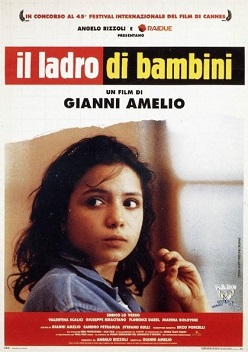
The Stolen Children is a 1992 Italian film directed by Gianni Amelio. The film was selected as the Italian entry for the Best Foreign Language Film at the 65th Academy Awards, but was not accepted as a nominee.

The Shape of Water is a 1994 novel by Andrea Camilleri, translated into English in 2002 by Stephen Sartarelli.
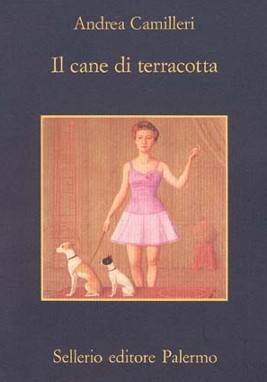
The Terracotta Dog is a 1996 novel by Andrea Camilleri, translated into English in 2002 by Stephen Sartarelli.

The Voice of the Violin is a 1997 novel by Andrea Camilleri, translated into English in 2003 by Stephen Sartarelli.

Luca Zingaretti is an Italian actor and film director, known for playing Salvo Montalbano in the Inspector Montalbano mystery series based on the character and novels created by Andrea Camilleri. Zingaretti is a native of Rome, and the older brother of politician Nicola Zingaretti.
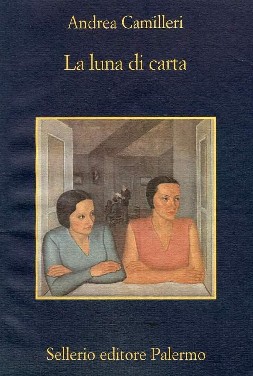
The Paper Moon is a 2005 novel by Andrea Camilleri, translated into English in 2008 by Stephen Sartarelli. It is the ninth novel in the internationally popular Inspector Montalbano series.

August Heat is a 2006 novel by Andrea Camilleri, translated into English in 2009 by Stephen Sartarelli. It is the tenth novel in the internationally popular Inspector Montalbano series.

The Wings of the Sphinx is a 2006 novel by Andrea Camilleri, translated into English in 2009 by Stephen Sartarelli. It is the eleventh novel in the internationally popular Inspector Montalbano series.

22 Bullets is a 2010 French gangster-action film directed by Richard Berry. It tells a part of the life story of Jacky Imbert, and is based on the novel L'Immortel (2007) by Franz-Olivier Giesbert. Filming began on 23 February 2009 in Marseille, in Avignon in early April 2009, and continued for 8 weeks in Paris.

The Potter's Field is a 2008 novel by Andrea Camilleri, translated into English in 2011 by Stephen Sartarelli. It is the thirteenth novel in the internationally popular Inspector Montalbano series.

The Inspector Montalbano television series are Italian police procedural stories. Based on Andrea Camilleri's detective novels, they are located in the imaginary town of Vigàta, Sicily, which is based on Camilleri's native Porto Empedocle. The series protagonist, Salvo Montalbano, is the police chief, or commissario.
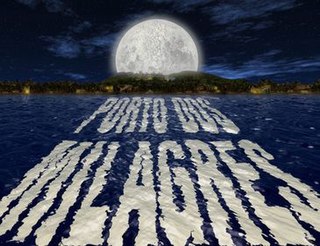
Porto dos Milagres is a Brazilian telenovela that was produced and aired by TV Globo from 5 February to 29 September 2001, totaling 203 chapters.

The Age of Doubt is a 2008 novel by Andrea Camilleri, translated into English in 2012 by Stephen Sartarelli. It is the fourteenth novel in the internationally popular Inspector Montalbano series.
Peppino Mazzotta is an Italian actor, known for playing police officer Giuseppe Fazio in Il commissario Montalbano mystery series based on the character and novels created by Andrea Camilleri. Mazzotta is a native of Domanico.

The Young Montalbano is an Italian television spin-off produced and broadcast by Radiotelevisione Italiana (RAI) in 2012 and 2015. It is a prequel to the Inspector Montalbano series that are based on the detective novels of Andrea Camilleri. The setting is the fictional town of Vigàta, Sicily.

Mouna Noureddine, is a Tunisian actress.
